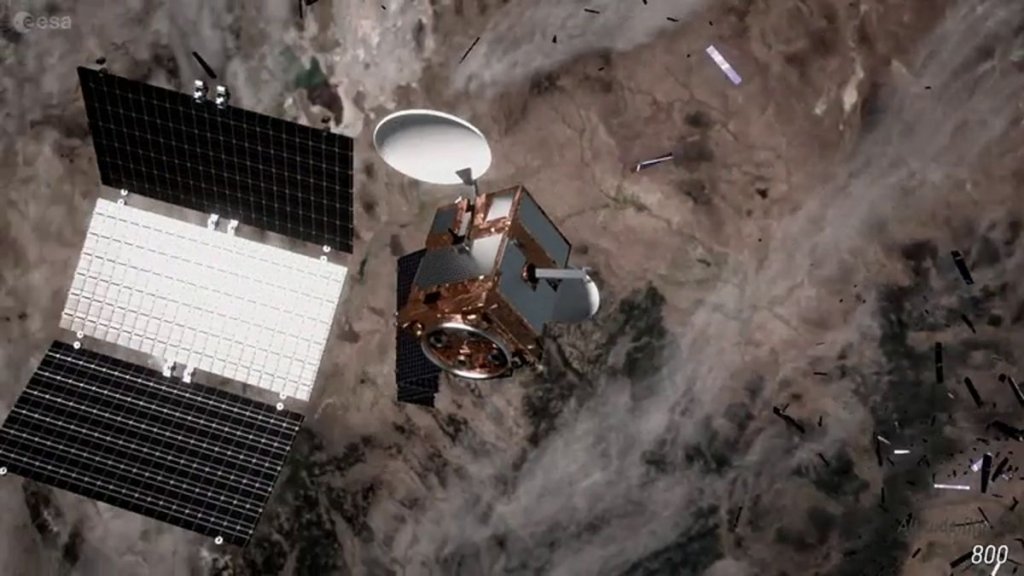The fast-growing space debris issue is top of mind at a new space-focused division of the U.S. government.
“Satellite and orbital debris rules” will be one of the primary responsibilities of the newly created Space Bureau of the Federal Communications Commission (FCC). The regulator announced (opens in new tab) the new bureau on Tuesday (April 11).
The FCC is trying to pivot quickly amid a fast-changing space environment; more satellites launching and an increasing collision risk are among the challenges it faces. For example, SpaceNews reports (opens in new tab) that the regulator has an application backlog representing 60,000 new satellites targeting low Earth orbit.
Smaller satellites and improved launch access are changing the orbital landscape. One of the big drivers of this push is SpaceX: its Starlink constellation already has more than 3,000 active satellites in orbit. Eventually, SpaceX wants to put as many as 42,000 Starlink satellites aloft.
Related: 6 types of objects that could cause space debris apocalypse
More satellites, however, means more potential for trouble: Starlink has been pointed to as the primary driver of collision “close calls” in orbit. Meanwhile, the overall space environment is becoming more and more polluted, especially through activities like a Russian anti-satellite test in 2021, which generated a cloud of debris that affects the orbits of Starlink and the ISS alike.
The environment is changing so fast that the FCC issued a call for updated space debris rules in mid-2022, barely two years after issuing its last set. The existing framework was “designed for a time when going to space was astronomically expensive and limited to the prowess of our political superpowers,” FCC chair Jessica Rosenworcel stated on Aug. 5.
While the FCC release on Tuesday had few details about the bureau, new head Janet Kearney spoke about her organization’s aims at a ceremony in Washington, D.C. attended by reporters.
Kearney said the FCC is “wrapping up comment cycles for expedited processing of applications” for satellite launches and added that the regulator is “simultaneously focusing on space orbital debris and space safety,” SpaceNews reported.
Key space-facing actions the FCC has taken in recent months, Kearney added, include shortening timelines for removing old satellites from orbit, a proposal to update rules on connecting smartphones to satellites, and an April 20 vote to revise how satellites share spectrum.
But with increasing orbital workloads, the new organization aims to take on the space side of the now-defunct International Bureau. The FCC also announced a new Office of International Affairs, which will take over the International Bureau’s work with regulators around the world on space practices.
Elizabeth Howell is the co-author of “Why Am I Taller (opens in new tab)?” (ECW Press, 2022; with Canadian astronaut Dave Williams), a book about space medicine. Follow her on Twitter @howellspace (opens in new tab). Follow us on Twitter @Spacedotcom (opens in new tab) or Facebook (opens in new tab).

